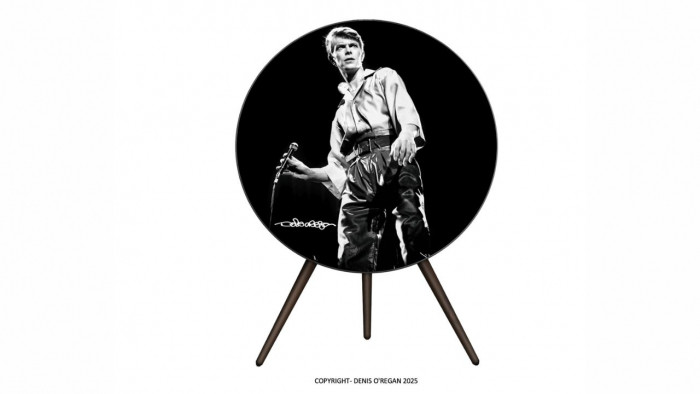At first glance, the junction between London’s Old Street and City Road looks pretty much like any other gyratory system in the UK. Clogged with traffic and litter, it certainly doesn’t resemble a futuristic landscape that will shape our online lives for years to come.
But in fact, this is the fabled ‘Silicon Roundabout’ bigged-up by David Cameron as a British tech hub to rival California’s (far prettier) Silicon Valley. With the surrounding streets now home to more than 200 digital start-ups, ShortList profiles seven companies in the area with the potential to become the UK equivalent of Facebook, Google, Spotify or Twitter.
7digital
In a nutshell: iTunes for Apple refuseniks
If you buy digital music, the chances are you’ll have used 7digital at some point. The company set up on Silicon Roundabout in 2004 (“Long before Cameron jumped on the bandwagon,” quips CEO Ben Drury, 36) and has its own download store, but its technology also powers music services for everyone from HMV to Samsung. This effectively makes 7digital “a PayPal for digital content”, says Drury, providing a platform for companies that want to provide music services but don’t want to handle transactions themselves.
“We’re trying to help anyone to compete with Apple,” says Drury. “It’s almost impossible to make a standalone digital music business work, because Apple set the pricing and the business model.”Drury spent the early years trying to convince sceptical record labels that digital music was the future. “Executives used to say, ‘We just want to defend the CD.’ Now they’re a lot more progressive,” he says.
Playing the long game has seen 7digital outlast more high-profile services and led HMV to buy a 50 per cent stake in the company for £7.7m in 2009. That deal not only gave Drury “some liquidity” (translation: piles of cash), but also honed his belief that digital start-ups could be the new rock’n’roll. “Kids who 20 years ago would have picked up a guitar now create cool apps.”
Find them here.
SoundCloud
In a nutshell: Flickr for music
If you ever doubted The Social Network’s depiction of start-up life as a series of big nights out with Justin Timberlake, then SoundCloud CEO Alexander Ljung has good news. He just spent a weekend hanging out with Ashton Kutcher and Demi Moore. “The funny thing is, it wasn’t on the Hollywood scene,” laughs Ljung, 29. “It was in a house in Idaho in the northwest with a bunch of tech guys.”
Kutcher is an investor in SoundCloud, a service originally created in 2007 so Ljung and co-founder Eric Wahlforss could share music they were working on online and comment on what each other was creating. It’s now used by record labels and artists to air promos and showcase music. It has six million users, including Snoop Dogg and Kylie Minogue, and the company’s growing so fast they recently had to “pack away the ping-pong table” at its London office to make room for more staff. Nonetheless, Ljung intends to stay on Silicon Roundabout: “It’s great to be surrounded by people who don’t think you’re crazy.”
Find them here.
Zolmo
In a nutshell: The Channel 4 of apps
Shoreditch’s trendy restaurants get less business from the Zolmo team than the area’s other start-ups. That’s because they’ve had a hotline to Jamie Oliver ever since Zolmo, established in 2009, produced his 20 Minute Meals iPhone recipe app, which rapidly hit No1 on Apple’s top-grossing apps chart.
CEO Tristan Celder, 29, compares the app scene to the entertainment business at the birth of TV: “The devices are there, but the actual content is nowhere near where it could be.”
As well as continuing to work with Oliver, Celder plans to fill that gap by signing other talent for similarly tailored apps. So if its office starts attracting more stars than a night out in The Box, you’ll know why.
Find them here.
Mind Candy
In a nutshell: Tamagotchi meets Facebook
To most people, Michael Acton Smith looks like any another slightly scruffy Shoreditch hipster. But to the nation’s under-13s, the Mind Candy CEO and creator of online virtual pet phenomenon Moshi Monsters is an A-list celebrity.
“I got stopped by a girl yesterday who asked, ‘Are you Mr Moshi?’” he grins, ushering ShortList into the company tree house (yes, tree house), where he does his interviews. “It was surreal, like being a rock star in a bizarre way…”
At 36, Smith had already launched online gadget store Firebox in the first dotcom boom. Mind Candy got off to an inauspicious start in 2004 with online treasure hunt Perplex City (“Very creative -—but commercially a disaster,” Smith laughs) but Moshi now has more than 50 million users, with a range of books, clothes, toys and music due to top 2011 Christmas lists everywhere.
“We’re no longer thinking in terms of just a website,” says Smith. “We’re creating a franchise the way Disney creates franchises.”
Find them here.
Songkick
In a nutshell: Twitter meets Time Out for gig-goers
You’d think one perk of working for the second-most popular concert listings site on the web (beaten only by ticketing giant Ticketmaster) would be all the free gig tickets you could ever want. But Songkick CEO Ian Hogarth bans himself and his team from accepting freebies (although they do get a £25-per-month concert allowance).
“If you’re on the guestlist, you don’t have to deal with a 9am on-sale,” he says. “We would make a sub-standard product if we weren’t aware of the pain a normal fan goes through.”
Millions of such fans now track their favourite artists on Songkick, started in 2007 to help Hogarth, 29, keep track of all the gigs he wanted to see. “Download our iPhone app,” he says, “and you’ll never have to miss a concert again. We’ll tell you when every band you like comes to your city.”
Now all you have to do is beat the Songkick team to those tickets…
Find them here.
Last.fm
In a nutshell: Online radio that can read your mind
If you know that ‘scrobbling’ is the technical term for sending information about your listening habits to a personalised online radio service, then congratulations, you’re no doubt a Last.fm subscriber. If, however, you thought it was some sort of sexual act… well, Last.fm’s vice-president of product and marketing, Matthew Hawn, doesn’t mind at all, actually. “If more people want to do it because of that, that’s a good thing for us,” he laughs.
Last.fm has collected 50 billion such scrobbles from 30 million users since it launched in 2002, and that information about listening habits not only makes sure users hear music they like, but it also persuaded US media group CBS to buy it for £140m in 2007. The founders have since left, considerably richer than they arrived, but Hawn, 44, insists their legacy remains intact. “We still act as a start-up within a big company,” he says. “And we don’t have separate corporate toilets, that’s for sure.”
Find them here.
TweetDeck
In a nutshell: A personal organiser for Twitter
You may have only heard of it if you use Twitter so much that you make Stephen Fry look like JD Salinger, but TweetDeck just hit the big time. The service — which customises your Twitter feed and is the application of choice for many prolific tweeters — only launched in 2008 and never turned a profit, none of which prevented it being sold by founder Iain Dodsworth, 36, in May for £25m.
Most significantly, it was bought by Twitter itself. Tweetdeck will continue as a standalone product and is likely to be used to help Twitter generate advertising revenue, but its Old Street office will now become Twitter’s UK HQ, putting one of the US’s digital giants at the heart of Silicon Roundabout.
“That could create a domino effect,” says Stuart Dredge, editor of digital business intelligence site Music Ally. “It will create even more of a buzz around Silicon Roundabout, and other firms could follow.”
Find them here.










